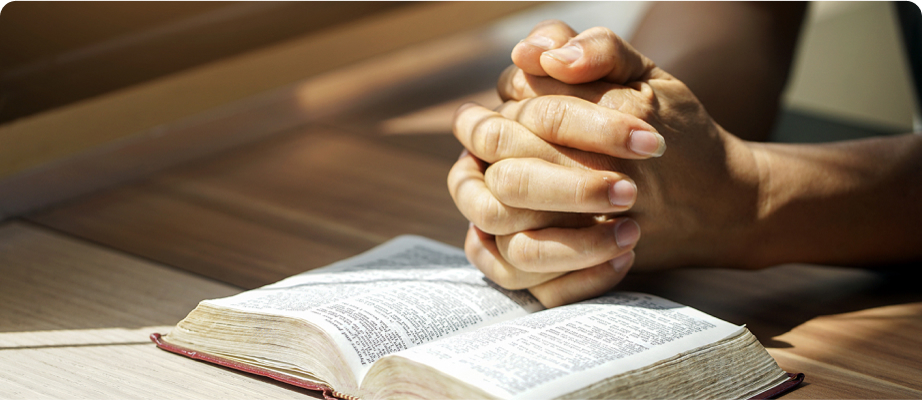Advice Center
Get tips and explore common end-of-life topics.

How to: Plan a Catholic Funeral
It’s estimated that 22% of the population of the United States identifies as Catholic, with 29% identifying as Catholic in Canada.
As with many other faiths, Catholic funerals have a lot of distinct rituals you can follow, like certain hymns that are allowed for funerals or specific scriptures to read.
Planning a Funeral
When planning a funeral for a member of a Catholic congregation, think deeply about how interwoven faith was with their life. This can help inform how much you want to emphasize religion throughout the process. Also, look to their favorite songs, sayings, hymns and scriptures. Although there are certain hymns and readings allotted for funerals, there are many options to choose from.
You also have some flexibility when it comes to music and presentations from members of the family. Perhaps there’s a talented family member who would accompany a certain hymn with a musical instrument? Or lead the group in song?
Catholic funerals often involve multiple prayers, readings and hymns - in addition to the eulogy. There are multiple opportunities for members of the family to take part. It’s best to organize this as soon as possible and ensure people have the materials they need to present.
Often, funeral directors will play a big role in helping to delegate readings and handing out materials for members of the family. You can opt to work with a funeral home that specializes in Catholic funerals.
When planning a Catholic funeral for your loved one, you should also consider where you’d like their funeral service to be held. Typically, this would be in a church - ideally, the church they attend where they are best known. But, if you’re having a smaller event, selecting a Catholic funeral home with a chapel might be the best option for you.
There are also Catholic cemeteries to consider when picking a final resting place.
Catholic Funeral Traditions
Before the Funeral
Visitation is common in Catholic funerals. Often, the faith-based portion of the funeral process will happen in a church. But, a funeral home will still be selected to handle all other aspects of the funeral, like arranging for transportation of the body and hosting visitation.
Because visitation is so common, families often opt for embalming to preserve the body for viewing. There are no guidelines against embalming in the Catholic faith, nor are there issues with organ donation.
Having an open or closed casket is at the discretion of the family, however, during the mass itself the casket will be closed.
Priests, also referred to as the Celebrant, can work with the family to develop a program for the funeral. Depending on the funeral home you choose, a funeral director can also help play this role.
Catholic funerals have a set repertoire of appropriate hymns, scripture readings and prayers. That can make the planning process a bit easier on the family.
Depending on how close to the church your loved one was, you might have a personal relationship with the priest who will be able to add a personal touch to the parts of the event he leads.
Be prepared to talk about your loved one and their faith throughout the funeral planning process. You should also have someone appointed to give the eulogy.
The night before a funeral, some Catholic families choose to have a prayer vigil. It can either happen in the church where the funeral will be held, or in the family home.
During the Funeral
Many Catholic funerals are not unlike a typical mass. They follow a distinct order, with a few exceptions depending on how you intend to organize them.
Here are the steps you often see included in a Catholic funeral with mass:
- Processional: This is a hymn sung by the congregation upon beginning the service. There are set hymns deemed appropriate for the processional and you’re able to choose from them. Or, rely on a member of the church to select something appropriate for you.
- Welcome: This is a short, welcome speech. It can be given by the priest, or a member of the family.
- Eulogy: This is often a non-religious part of the funeral. At Catholic funerals, typically only one eulogy is given and is presented by a close friend or member of the family.
- Opening Prayer: The priest leads the congregation in prayer to ask God for his blessing of the event.
- First and Second Scripture Readings: There is an approved list of passages that can be read. Typically, this is read by the priest or a member of the family. These readings are often spaced apart and read by different people. The first reading is typically from the Old Testament and the second from the New Testament.
- Responsorial Psalm: This is a psalm read with participation from the congregation. Hymns are also considered appropriate at this stage.
- Gospel Reading: This is an approved passage of scripture from the Gospels, read by the priest or a member of the family.
- Homily: This is a presentation by the priest, relating passages from the Bible to the life of the deceased.
- Prayer of the Faithful: This is an intercession, where the congregation responds to the reader. You may choose to write your own with the blessing of the priest.
- Prayers of Farewell: The priest leads the congregation in final prayers on behalf of the deceased.
- Recessional: As the family departs, the casket carried by pall-bearers, the congregation sings a hymn.
Your family may choose to hold a full Catholic Funeral Mass, this is the most formal and lengthy of all types of Catholic funerals. This involves taking communion.
Catholic Funeral Etiquette
If you are a non-Catholic attending a Catholic funeral, you should not participate in taking Communion. However, you can still participate by going up and receiving a blessing from the priest. Otherwise, follow along with singing and prayer.
Typical Catholic funerals are 30 minutes without mass, or 60 minutes with mass.
You are welcome to donate flowers, however, the family will often share their wishes for donations in the obituary. Flowers are common, as are offerings to a specific charity in the deceased’s name.
For funerals, the dress code is also typically somber and conservative. Black attire isn’t required, but dark clothing is typically preferred. Recording devices aren’t prohibited, but shouldn’t be brought without express permission from the family.
Food may be served following the funeral, but it varies by family.
After the Funeral
Often, burials take place immediately after the funeral, usually at a Catholic cemetery.
Historically, cremation has been controversial in the Catholic church. However, in 2016, the Vatican ruled that Catholics may choose to be cremated as long as ashes are not scattered, divided or stored at home. They recommend burying ashes, or storing them in a church-approved location, like a Columbarium inside the church where there are “niches” for storing and memorializing a loved one.
Post-funeral receptions are common. Depending on your family, you may choose to have a small private gathering at home. Or, you may book a room in the church or a nearby reception hall to host a larger gathering. Often, light refreshments are served and people can gather together to grieve the deceased.
The typical mourning period after the loss of a loved one in the Catholic faith is seven days, however, this may vary depending on the family and your arrangements with your employer.
Where Planning Starts
First and foremost, think of what your loved one would have wanted for their end-of-life celebration.
Then, ensure their wishes align with the budget allotted for the occasion.
In ideal cases, you will have had a chance to sit down with your loved one before their death and ask them about their wishes for their funeral. But, if not, there are support systems you can lean on to plan a Catholic funeral.
Sources:
https://www.cremationresource.org/cremation/what-are-the-storage-options-for-cremated-ashes.html
https://www.funeralwise.com/customs/catholic/
https://www.everplans.com/articles/catholic-funeral-traditions
